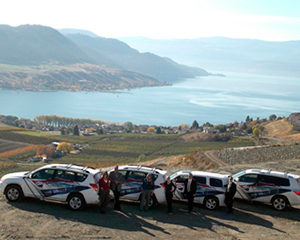Buying a house can be an exciting and nerve-wracking journey, filled with paperwork, inspections, and anticipation. But what if a disaster strikes, like a wildfire, that destroys your dream home before you even move in? In this blog post, we'll explore what happens when unforeseen events like these threaten to derail your home-buying plans and how the doctrine of frustration may come into play.
Picture this: You've finally found your dream home. After making an offer, signing a purchase agreement, and completing all your due diligence, you're on the brink of realizing your homeownership dream. You've even given your deposit and eagerly await your closing date. However, just when you think everything is on track, a catastrophe occurs—your soon-to-be home is reduced to ashes by a devastating wildfire or another unforeseen event.
The Doctrine of Frustration:
In situations like these, the doctrine of frustration can be your saving grace. This legal principle comes into play when an unforeseeable event makes it impossible to fulfill a contract as initially intended. In this case, the contract in question is the purchase agreement for your house.
The intention was simple: to buy a house on a specific piece of land. Unfortunately, reality has thrown a curveball, and the house is either destroyed or damaged beyond repair. The burning down of the house qualifies as an unexpected and uncontrollable event, often referred to as a force majeure.
Since you, as the buyer, cannot reasonably be expected to fulfill your part of the contract—buying the house in its original condition—the doctrine of frustration may apply. If it does, which is highly likely if the house is entirely lost, you may not be obligated to proceed with your purchase, even if you've already paid a deposit and your completion date is near.
What to Expect:
In the event of such a catastrophe, your deposit is likely to be refunded, and the contract may be considered null and void. However, it's crucial to note that specifics can vary, and the terms of your contract can make a difference. Therefore, consulting with legal professionals to understand your rights and responsibilities in such a situation is of utmost importance.
Conclusion:
While the chances of your dream house burning down before closing are relatively low, knowing your rights and legal options in such a scenario is invaluable. Remember that this blog post provides general information and should not replace independent legal advice. So, if you ever find yourself facing this unexpected turn of events, you'll be better prepared to navigate the complexities of your home-buying journey. Good luck!
__________________________________
About the Author: The article above, You've Bought a House and It Burns Down before closing .... What Now?, was provided by Lisa Salt, an authority on Vernon BC and area real estate and a leader in the field of real estate blogging and vlogging. Lisa and her group have helped literally helped thouands of families buy and sell homes since 1993.
Looking to buy a home in the Vernon/North Okanagan area? Check out "Everything You Need to Know About Buying a Home" article. It’s free of charge and will save you a ton of time!
Looking to sell? We use the latest technology to get our clients’ homes sold quickly and for as much money as possible.
We help people buy and sell real estate in the following Okanagan/Shuswap areas: Vernon, Armstrong, Enderby, Lake Country, Lumby, Westside and Salmon Arm/Shuswap.
Call or Text 250-549-7258 or email webinfo@saltfowler.com












Comments:
Post Your Comment: